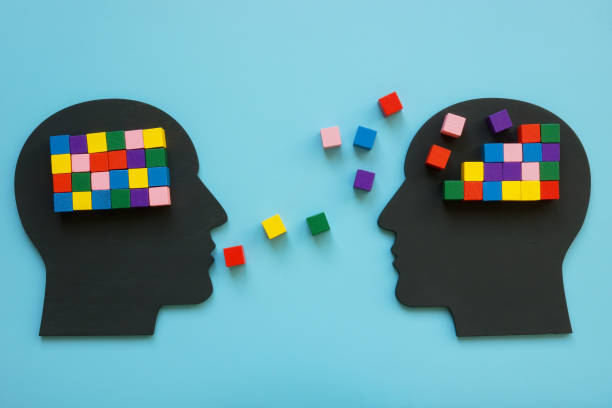Mastering Effective Communication:

A Key to Personal and Professional Success:

Communication is the backbone of human interaction, impacting every aspect of our lives, from personal relationships to professional achievements. Effective communication skills are essential for conveying thoughts, understanding others, and building meaningful connections. Whether you’re expressing ideas in a business meeting, resolving conflicts at home, or simply sharing moments with friends, mastering communication can transform your interactions and overall success. In this article, we’ll explore why mastering communication is crucial, the key components of effective communication, how to overcome barriers, and the significant role communication plays in personal and professional growth.
1. Why Effective Communication Skills Matter:
Effective communication is more than just exchanging information; it’s about understanding the emotion and intentions behind the information. Clear communication helps prevent misunderstandings, fosters stronger relationships, and creates a positive environment, whether at work or in personal life. Miscommunication, on the other hand, can lead to confusion, conflict, and missed opportunities.

When you communicate effectively, you build trust and respect with others, which is foundational for any successful relationship. Trust is not built solely on words but on the consistency and clarity of those words over time. In personal relationships, effective communication helps partners express their needs and feelings openly, reducing the chances of conflict. In professional settings, strong communication skills can lead to better collaboration, enhanced problem-solving, and increased productivity.
Furthermore, effective communication is closely linked to leadership. Leaders who communicate well can inspire and motivate their teams, articulate a clear vision, and navigate through crises with transparency and empathy. This not only builds a cohesive and motivated team but also drives the organization towards achieving its goals.
2. Key Components of Effective Communication:
To communicate effectively, it’s essential to focus on several key components:

- Active Listening: Active listening is perhaps the most important component of effective communication. It involves paying full attention to the speaker, showing empathy, and responding appropriately. This means not just hearing the words but also understanding the emotions and intentions behind them. Active listening requires you to be present, avoid interrupting, and reflect back what you’ve heard to ensure understanding.
- Clarity and Conciseness: Being clear and concise is crucial in ensuring your message is understood as intended. Avoid using jargon, overly complex sentences, or unnecessary details that can dilute your message. Aim to be direct and specific, making it easier for the receiver to grasp the main point without confusion.
- Non-Verbal Communication: A significant portion of communication is non-verbal. Body language, eye contact, facial expressions, and tone of voice play a substantial role in how your message is received. For example, crossed arms might be perceived as defensive, while maintaining eye contact can signal confidence and honesty. Being mindful of these cues can greatly enhance the effectiveness of your communication.
- Empathy and Understanding: Empathy allows you to connect with others on a deeper level. By putting yourself in the other person’s shoes, you can better understand their perspective and respond in a way that is considerate of their feelings. This not only improves communication but also strengthens your relationship with the other person.
- Feedback: Effective communication is a two-way street that involves giving and receiving feedback. Providing constructive feedback helps others improve, while being open to feedback yourself shows that you value others’ input and are willing to grow.
Mastering these components can dramatically improve the quality of your interactions, leading to more productive and meaningful conversations.
3. Overcoming Communication Barriers:

Even with the best intentions, communication barriers can arise, leading to misunderstandings and conflict. These barriers can stem from various sources, including language differences, emotional biases, distractions, and differing communication styles. Recognizing and addressing these barriers is crucial for maintaining effective communication.
- Language and Cultural Differences: In a globalized world, communication often occurs between individuals from diverse linguistic and cultural backgrounds. Language barriers can make it difficult to convey messages accurately, while cultural differences can influence communication styles and expectations. To overcome these barriers, it’s important to use simple language, avoid idioms or slang, and be mindful of cultural sensitivities. When in doubt, ask for clarification to ensure mutual understanding.
- Emotional Barriers: Emotions such as anger, frustration, or stress can cloud judgment and impede clear communication. When emotions run high, it’s easy to misinterpret words or react defensively. To mitigate emotional barriers, practice emotional regulation techniques such as deep breathing, pausing before responding, and addressing the underlying emotions before continuing the conversation.
- Distractions and Lack of Focus: In today’s fast-paced world, distractions are everywhere—whether it’s a buzzing phone, background noise, or multitasking. These distractions can prevent you from fully engaging in a conversation. To combat this, create an environment conducive to focused communication by eliminating distractions, making eye contact, and dedicating your full attention to the interaction.
- Assumptions and Misinterpretations: Assumptions are a common communication pitfall. Assuming you know what the other person is going to say or what they mean can lead to misunderstandings. To avoid this, listen actively, ask clarifying questions, and refrain from jumping to conclusions.
By being aware of these barriers and taking proactive steps to overcome them, you can enhance the effectiveness of your communication and reduce the likelihood of misunderstandings.
4. The Role of Communication in Personal Growth:

Communication skills are not just about talking; they are about connecting. By honing your ability to express yourself and understand others, you open doors to personal growth and self-improvement. Effective communication can help you navigate social situations, resolve conflicts, and express your needs clearly and confidently.
In personal development, communication plays a significant role in self-awareness and emotional intelligence. The better you understand yourself, the more effectively you can communicate your thoughts and feelings to others. This leads to healthier relationships and a more fulfilling life. For instance, being able to articulate your goals, desires, and boundaries helps you set clear expectations with others, reducing the potential for misunderstandings and conflict.
Moreover, strong communication skills can boost your confidence. When you know how to convey your ideas clearly and assertively, you are more likely to participate in discussions, take on leadership roles, and advocate for yourself in various aspects of life. This confidence extends beyond words—it affects how you carry yourself, how you interact with others, and ultimately how you are perceived.
5. Communication Skills in the Workplace:
In the workplace, communication skills are a top priority for employers. Strong communicators can lead teams, resolve conflicts, negotiate effectively, and foster a collaborative environment. Whether you’re in a leadership position or a team member, your ability to communicate impacts your career growth and the overall success of your organization.
Effective workplace communication involves more than just talking; it includes listening, understanding, and adapting your communication style to suit different situations and audiences. For example, the way you communicate with a superior might differ from how you engage with peers or subordinates. Flexibility in communication style is key to ensuring your message is well-received across different contexts.
Providing and receiving feedback is another critical aspect of workplace communication. Constructive feedback helps improve performance and fosters a culture of continuous learning. On the other hand, being open to receiving feedback shows humility and a willingness to grow. Clear and respectful feedback can prevent misunderstandings, improve job performance, and enhance overall team dynamics.
Additionally, communication skills are crucial during conflict resolution. Workplace conflicts are inevitable, but they can be managed effectively through open, honest, and respectful dialogue. Addressing issues early on and discussing them calmly helps prevent conflicts from escalating and promotes a positive work environment.
6. Practical Tips to Improve Communication Skills:

Improving your communication skills is an ongoing process that involves practice, feedback, and a willingness to learn. Here are some practical tips to help you enhance your communication abilities:
- Practice Active Listening: Make a conscious effort to listen more than you speak. This not only helps you understand the other person better but also shows that you value their input.
- Work on Your Non-Verbal Cues: Pay attention to your body language, eye contact, and facial expressions. These non-verbal cues can significantly impact how your message is received.
- Seek Feedback: Ask for feedback on your communication style from trusted friends, colleagues, or mentors. This can provide valuable insights into areas where you can improve.
- Be Mindful of Your Tone: Your tone of voice can convey much more than your words. Aim for a tone that matches your message—calm and measured for serious discussions, upbeat and enthusiastic for positive news.
- Continuously Learn and Adapt: Communication is a skill that evolves with experience. Stay open to learning new techniques, adapting to different communication styles, and refining your approach as you gain more insight.
Embrace the Power of Effective Communication:
Effective communication is a powerful tool that enhances every aspect of life. From building trust in relationships to achieving professional goals, mastering communication skills is a worthwhile investment. By focusing on clarity, active listening, empathy, and overcoming barriers, you can create a more connected and fulfilling life.
Remember, communication is not just about speaking; it
it’s about connecting on a deeper level. Embrace the journey of improving your communication skills, and watch how it transforms your personal and professional relationships.


